


Jeremiah Hess Barr
(1876 – May 26, 1955) Pennsylvania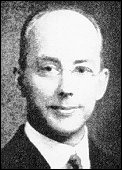
Barr was an active collector who wrote extensively on his collecting interests. He was a noted student of the U.S. Banknote issues. Barr had a special interest in collecting the Barr's Penny Dispatch (Scott 8L1 and 8L2) local issue. This was established in Lancaster, Penn., in 1855 by his grandfather, Elias Barr. He had other collections about which he wrote, including U.S. Revenues, Ionian Islands and Lombardy-Venetia.
"Jehr."
wrote a stamp column for six years in the Reading (Pa.)
Sunday Eagle. He was one of the organizers and founders
of the American Philatelic Congress and served as both its president
and editor at various times. In his memory, the Congress established
the Jere. Hess Barr Award for the best presentation at the annual
APC Writers Forum.
Dr. Daniel Deronda Berolzheimer
(June 30, 1877 – August 24, 1952) New York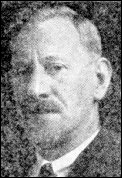
Dr. Berolzheimer was a noted student of postal stationery who used his expertise as a chemist to evaluate paper, ink, and color characteristics. He, along with J. M. Bartels and Dr. Victor Berthold were known as the “three Bs” of postal stationery.
Berolzheimer authored the Bartels Postal Card Catalogue in 1937 and 1938 and was advisory editor of the 1943 edition of the Thorp-Bartels Catalogue. He also was a consultant for many years on the postal stationery section of Scott's Specialized Catalogue of United States Stamps. He wrote frequently on his specialty and wrote a column in Stamps magazine. Berolzheimer had many collections besides his famous one of U.S. postal stationery. He served as a member of the expert committee of the Philatelic Foundation.

Dr. Clarence Wilson Brazer
(March 13, 1880 – May 6, 1956) New York City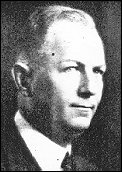
Dr. Brazer was the leading authority on United States proofs and essays. Through his efforts, the study and collecting of essays and proofs reached new levels of prominence. He helped build every important collection of his time. Brazer began his long series of papers and catalogs in 1938 with A Historical Catalog of U.S. Stamp Essays and Proofs.
His book, Essays for U.S. Adhesive Postage Stamps (APS Handbook – 1941) was based on the earlier works (1911–1912) Edward H. Mason with additions, corrections and illustrations. Many of the illustrations were of essays and proofs formerly in the collection of the Earl of Crawford. A book, Dr. Clarence W. Brazer Essay–Proof Price Lists, 1937–1956 was compiled by Robert L. Markovits (1982).
Brazer was Member
No. 1 of the Essay-Proof Society which he served as Director (1943-1953)
and editor of The Essay-Proof Journal (1944-1950). He became
Editor Emeritus in 1951. Brazer received the Luff Award in 1946
for Distinguished Philatelic Research.
Dr. Holland Archer Davis
(June 6, 1869 – December 27, 1955) Denver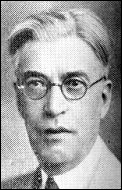
Dr. Davis was an advocate for national and local philately. He joined the APS in 1904 and served as the society's secretary for 30 years (1916-1945). In 1948 Davis received a special award from the APS for his long service to the society.
“Doc” Davis was a long-time president of the Denver Stamp Club and was called “Colorado's leading philatelist.” He also served in many other local and national philatelic organizations. He was a founding member of the United States Revenue Society, forerunner of the American Revenue Association.
Davis formed many
collections, and in 1922 wrote a monograph, U.S. 1887 3-cent
Vermillion. He received the Luff Award in 1954 for Exceptional
Contributions to Philately.
Dr. Clarence William Hennan
(May 22, 1894 – February 28, 1956) Chicago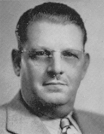
Dr. Hennan was an internationally recognized collector, exhibitor, and expert on the stamps of the Americas. He wrote extensively in his collecting areas, including a series of articles, “Haiti: Postal History and Stamps,” that appeared in The American Philatelist over a three-year period in the early 1950s. He also wrote Curaçao Specialized, published in 1952 as Chicago Philatelic Society Handbook No. 1.
Hennan served as president of the American Philatelic Congress, the American Philatelic Society (1931-1933), and the Collectors Club of Chicago. He served the Chicago Philatelic Society in numerous positions, and was made an Honorary Life Member. He was also a trustee of the Philatelic Foundation.
Hennan received the Newbury Award in 1951, the Lichtenstein Medal in 1953 and was posthumously named to the Roll of Distinguished Philatelists in 1956, the only time this was done.

Hugh Massey Clark
(1886 – January 21, 1956) New York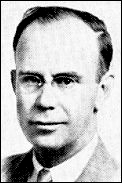
From 1912, when he joined the Scott Stamp and Coin Co., until his death 44 years later, Hugh Clark was one of philately's most influential persons. In 1914 he became the Scott manager, and in 1938 he purchased the company, selling the retail business and organizing the rest as Scott Publications. Scott Publications continued the publishing of the Scott Standard Postage Stamp Catalogue, first begun in 1867 by founder John Walter Scott.
Hugh Clark met his wife-to-be, Theresa M. Scheidemantel at Scott in 1912. In 1935 they first co-edited the Scott Standard Postage Stamp Catalogue, and both continued to write and edit other Scott publications for the rest of their professional careers. Under Hugh Clark's leadership, the Scott companies carried out an extensive newspaper and radio campaign to publicize the pleasures and rewards of stamp collecting. His company actively supported stamp exhibitions, purchasing exhibit frames and lending them to local organizations. Clark sold Scott Publications in 1946 to Gordon R. Harmer, but he and his wife continued as editors and writers for the firm.
Clark was president
of the ASDA (1927-1933), and was an active member of the Association
for Stamp Exhibitions in its organization of the U.S. international
philatelic exhibitions in 1926, 1936 and 1947. He was a founding
member of the Philatelic Foundation. In 1946, when he sold Scott
Publications, he gave the Philatelic Foundation the famous reference
collection formed by John
N. Luff. Clark signed the Roll of Distinguished Philatelists
in 1947.
Col. Max G. Johl
(October 26, 1900 – March 31, 1957) Connecticut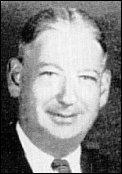
Johl was an expert on the 20th century issues of the United States. He was co-author, with Beverly S. King, of Volume 1 (1932) and Volume 2 (1934) of The United States Postage Stamps of the Twentieth Century and sole author of Volume 3 (1935), Volume 4 (1938), and Volume 1- Revised and Enlarged (1937). Johl also wrote The United States Commemorative Stamps of the Twentieth Century, 1902-1947 (two vols., 1947). He received the Crawford Medal of the Royal Philatelic Society London in 1938 for these works.
Johl also served
as officer in the Collectors Club of New York, and was an officer
and judge at the 1947 Centenary International Philatelic Exhibition
(CIPEX). He received the Luff Award in 1950 for Distinguished Philatelic
Research and signed the Roll of Distinguished Philatelists in 1957.
John W. Stowell, Sr.
(June 4, 1869 – October 5, 1955) Federalsburg, MD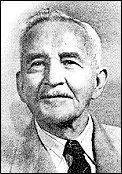
From 1899 until his death, Stowell was the leading philatelic printer in the United States. Among his many philatelic products were The American Philatelist, the APS Handbooks, the Congress Books published by the American Philatelic Congress, the books published by H.L. Lindquist, and numerous auction catalogs.
Stowell was honored by Philadelphia Chapter No. 18 of the American Philatelic Society at its Fiftieth Anniversary on November 17, 1954. He was presented a special plaque for "a Life of Devotion to Philately".
Stowell's printing business, located in Federalsburg, Maryland, accounted for 90 percent of the outgoing mail of this town of about 1400 people. In 1914, he received permission from the Post Office Department to print his own precancels. Stowell decided to use older stamps, both regular and commemorative for this purpose. He frequently changed the print type and thus nine types of his precancels are recorded. The result was a large variety of collectible stamps and precancel overprints, pleasing the philatelic recipients. Around 1930 the local post office decided to do its own precancels, ending this special period for collectors.

Sidney F. Barrett
(1892 – June 18, 1958) New York City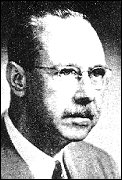
Barrett was one of philately's most highly respected dealers. From 1909 until his death, he was employed by or co-owned a series of important stamp businesses in New York City. In later years he edited Scott's Specialized Catalogue of United States Stamps.
“Sid” was an active member of the Collectors Club of New York serving on the Board of Governors. He was also president of the American Stamp Dealers Association. Barrett was a long-time director of the Association for Stamp Exhibitions, and was the secretary-treasurer of the 1913 International Philatelic Exhibition which the ASE organized.
Theodore E. Steinway
(October 6, 1883 – April 8, 1957) New York City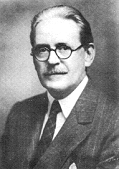
Steinway was an active philatelist who contributed greatly to the advancement of philately. He built important specialized collections of the New South Wales “Sydney Views” and German States, especially Hamburg. He also built a famous topical collection of the stamps and postal items related to his profession, music.
Steinway joined the Collectors Club of New York in 1912. In 1922 he purchased the famous philatelic library of Viktor Suppantschitsch, an Austrian philatelist and bibliophile, whose library, particularly strong in German-language material, was the greatest formed on the European continent. Steinway gave this library to the Collectors Club, and to this day the Club's holdings of early German philatelic literature is the best of any library.
He and his close friend, Alfred F. Lichtenstein, were the major forces behind the growth of the Collectors Club of New York and the acquisition of its permanent home. Steinway strongly supported the creation of the Philatelic Foundation, was a founder and its third chairman (1950-1952).
He was also a founder
of the Association for Stamp Exhibitions, which organized the first
five international exhibitions held in the U.S. (1913, 1926, 1936,
1947 and 1956). He served as its treasurer for 35 years. He signed
the Roll of Distinguished Philatelists in 1947 and received the
first Lichtenstein Memorial Medal in 1952.

Stanley Bryan Ashbrook
(October 10, 1882 – January 23, 1958) Kentucky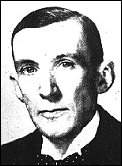
Ashbrook was a world-renowned expert on the stamps and postal history of the classic United States issues. He produced a large body of original research which he published in many journals.
His most celebrated work was the two-volume The United States One Cent Stamp of 1851-57, published in 1938. Ashbrook also wrote about the 5-cent and 10-cent 1847 and 1869 issues and the 10-cent 1855-57 issue. His book, The United States Ten Cent Stamp of 1855-57 (1936) received the Crawford Medal in 1937.
Ashbrook published a private subscriber series, “Ashbrook Special Service,” which included numerous photographs and descriptions of important U.S. covers. (It has never been formally reissued, but several reprints of the photographs exist.) Ashbrook also contributed to another subscriber series, “Bulletins of the Research Group” which has never been reprinted.
After his death,
his important accumulation of unpublished notes, photographs and
annotated books and catalogs were sold at auction in 1958 by H.R.
Harmer (NY). Among his many awards, Ashbrook received the first
Luff Award in 1940 for Distinguished Philatelic Research. He signed
the Roll of Distinguished Philatelists in 1950.
Stephen Gottheil Rich
(1890 – August 10, 1958) New Jersey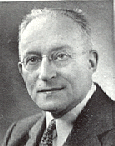
Rich was a life-long active philatelist who left his mark in the philatelic world. He was introduced into philately as a child by his father, Joseph S. Rich, who was one of the proprietors of the Scott Stamp and Coin Co. and a founder of the Collectors Club of New York. The son's devotion to the Collectors Club was as great as that of his father.
Rich built many important specialist collections, most notably of the Orange Free State, the Boer War and the Cape of Good Hope Triangulars. He wrote Philately of the Anglo-Boer War of 1895-1902 (1943). Among his other collections were France, Poland, New Jersey postal history and U.S. Telegraph Stamps. He co-authored, with his father, United States Telegraph Issues (1947).
Rich was also an ardent collector of precancel stamps and edited The Precancel Bee from 1933 to 1941. For many years (1938-1958) he served as an officer in the Society of Philatelic Americans.




